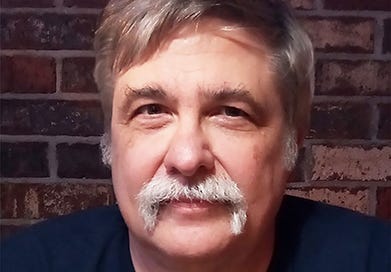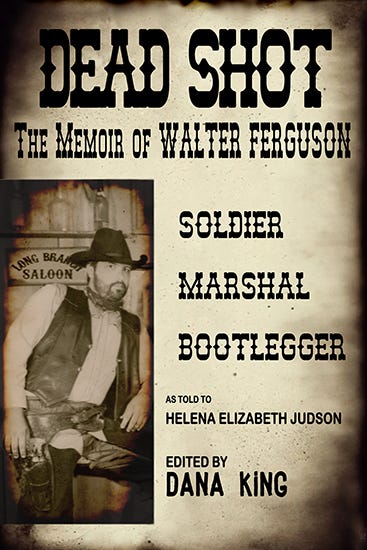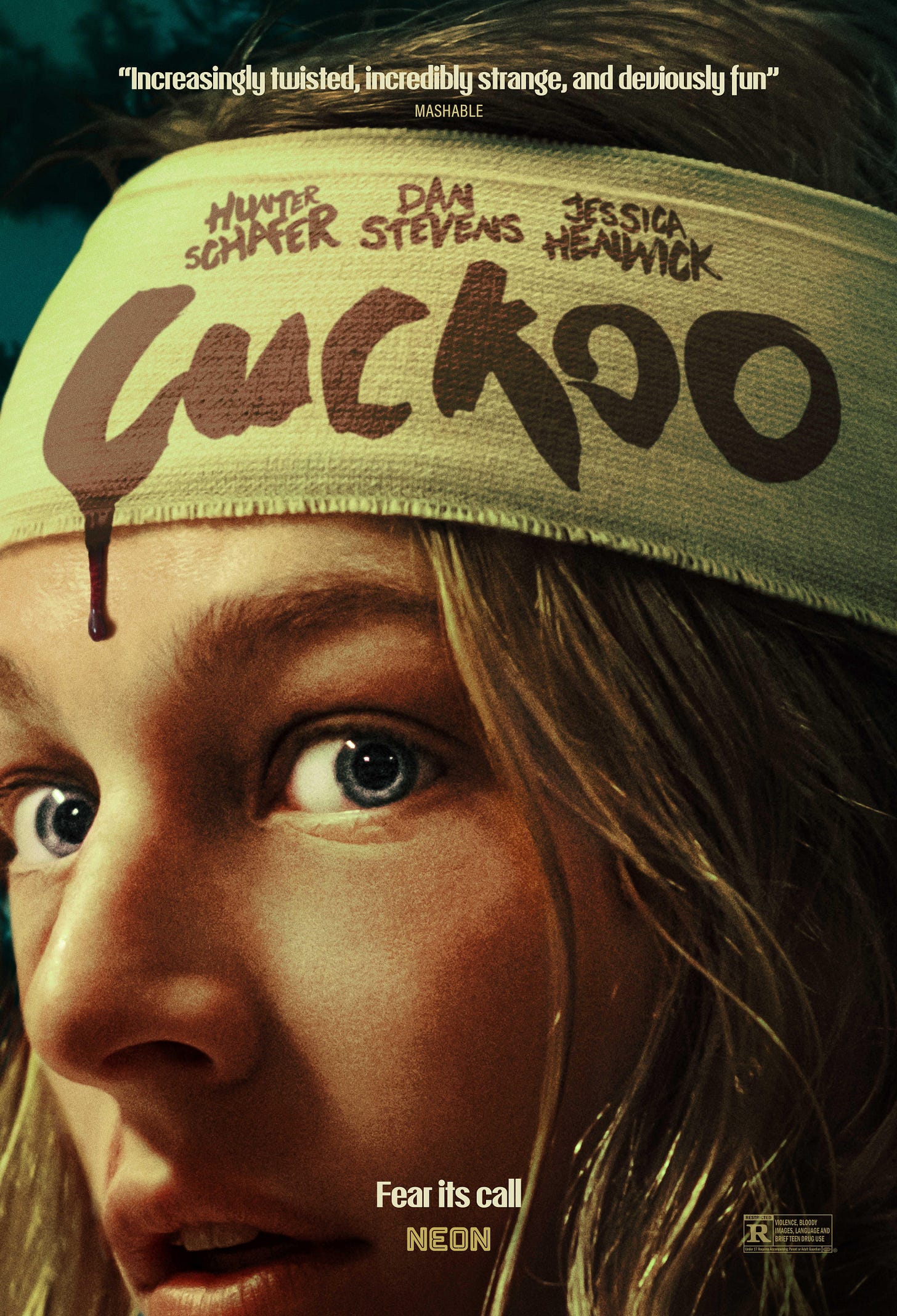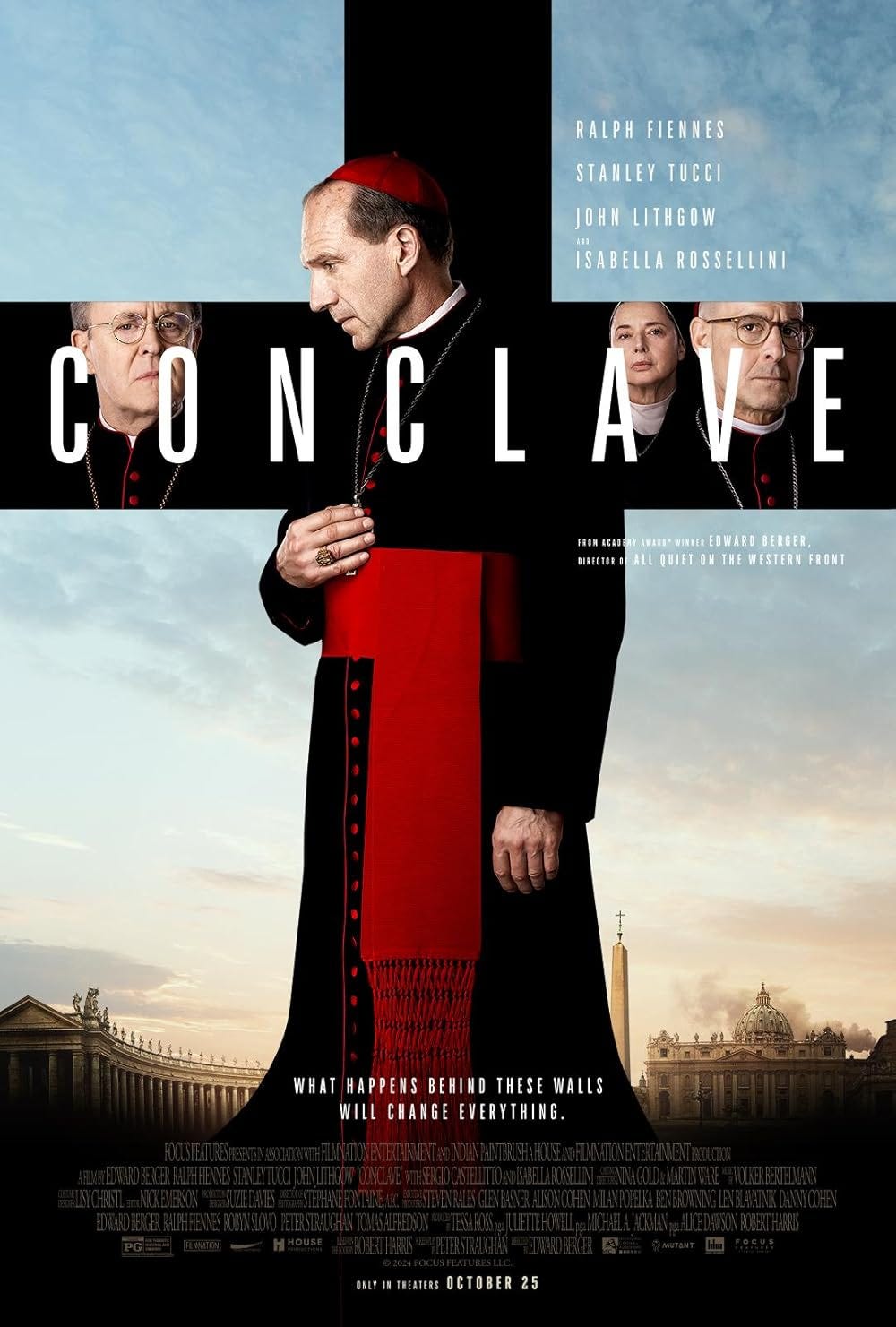There are few finer ambassadors into the crime fiction community than Dana King and his wife, Corky. When I attended my first Bouchercon—Dallas, 2019—I knew a few writers virtually, but hadn’t met a soul in person. Dana and Corky invited me to dinner that first night, introduced me to other writers, and provided encouragement and support to a clueless soul wandering a huge hotel with nerves in his throat and the fear people were going to figure out he didn’t know what he was doing. It was a kindness I can never repay, and I remain grateful to them to this day. Few things make me happier than seeing them at a convention and getting to sit and talk shop and life.
As if to add insult to injury, while Dana’s a stand-up guy, he’s also a hell of a writer. His Penns River novels is an outstanding procedural series, focused on the police department in a small Pennsylvania town, that draws deserving comparisons to the best of McBain and Wambaugh. His Nick Forte series, focused on a no-nonsense PI, has been twice-nominated for the Shamus by the Private Eye Writers of America.
Dana’s veered away from modern times with his latest, DEAD SHOT, this time crafting the fictional memoir of Walter Ferguson, whose life story intersects with Western legends such as Wild Bill Hickok and Butch Cassidy. Dana crafts the tale with the same sharp eye and affection for genre he’s brought to his police procedurals and PI novels.
Dana’s also the latest Five for Them, One for Me.
Let’s go.
FIVE FOR THEM
1. What was the origin point for DEAD SHOT?
I wrote a Western several years ago and never did anything with it because I wasn’t crazy about how it turned out. I’m happy with the writing but while proofreading it struck me as a repurposing of my favorite scenes from Westerns. One day while I was clearing snow off my car the idea of Walt Ferguson telling his life story came to mind. I had his life up to the Civil War well established in my head by the time the car was clean. It took me a couple of years to work the actual research and writing into my schedule, but I had the basic idea ready to go that day. My mind works like that sometimes. Scares even me once in a while.
2. You join a long and illustrious list of crime writers who’ve also written Westerns, including Elmore Leonard, Loren Estleman, and Robert B. Parker, among others. What do you think is the overlapping appeal for these genres among writers?
Estleman and Parker were primarily private eye writers, and I believe the 20th Century PI story is a continuation of the classic Western, updated to present times. Leonard didn’t write PIs per se, but his protagonists typically work on their own. Even when they’re part of larger organizations – Raylan Givens and the US Marshal Service or Raymond Cruz and the Detroit Police Department – they’re the odd man out. Leonard’s crime stories basically dealt with outlaws and good guys – well, better guys than the outlaws – just as the Westerns did. Hell, one of his earlier crime novels, City Primeval, even has the subtitle High Noon in Detroit.
3. DEAD SHOT is structured as a personal narrative, with Walter Ferguson telling his own life story. In his blurb, J.D. Rhoades compares the book to LITTLE BIG MAN, which uses a similar method to tell its own picaresque story. What led you to choose this for the book?
I knew J.D. was a friend but I didn’t realize how good a friend until I read that blurb. He also fixed the title for me. I’m grateful as hell for his time and generosity. I will return his dog unharmed, as promised.
I probably shouldn’t say this, and I did do months of research before I wrote Walt’s story, but I didn’t want to risk getting a fact wrong and leaving the door open for someone to pick the whole book apart, so I decided to rely on Walt’s “memory.” Any factual errors or omissions were not on me; Walt was an old man when he shared these stories.
The research also taught me I couldn’t come up with better, or more improbable, stories than what actually happened in the West. Making Walt a marshal allowed me to move him all over so I could work him into actual events without making fundamental changes to history. It was the most fun I ever had writing a book.
4. Like many genres, the Western is often defined through familiar tropes. Now I know you’re also a big fan of Clint Eastwood’s UNFORGIVEN, which deconstructs so many of the classic expectations of a Western. While writing DEAD SHOT, where did you want to explore or exploit tropes, and where did you want to break them?
I don’t have much time for what I call “good haircut” Westerns, by which I mean those made until about the late 1960s. The more I see of how this mythology shaped politics today, the less regard I have for it. There are exceptions—SHANE, THE MAGNIFICENT SEVEN, RIDE THE HIGH COUNTRY come to mind—but the Westerns that interest me are those that begin with THE WILD BUNCH and make some effort to show what that period was like.
Revisionist history has corrected some fallacies but created others, so I tried to call bullshit either way. For example, while Indians by and large were not the bloodthirsty savages early Westerns portray, that doesn’t mean there weren’t tribe who fit the description. Range detectives were nothing like how we think of detectives today. They were hired guns working for the cattlemen, tasked with bringing “justice” to whoever the cattlemen decided was a rustler; no trials were necessary. Rules of evidence were non-existent. There are other things along those lines. If I can get someone who still thinks of the West in John Wayne terms to wonder if maybe they should look a little deeper, then I did what I set out to do.
5. DEAD SHOT is being offered as a free download on your website. What spurred this, rather going the conventional publishing route?
This is a can of worms for me, so I’ll keep it brief. To paraphrase Joel Cairo in THE MALTESE FALCON, my experiences with the publishing industry have not been such that I am anxious to continue them. I came to realize the only things I liked about being a writer was the writing and talking about the craft. Everything else was a pain in the ass. So I canceled all my contracts and was in the process of self-publishing on Amazon when Jeff Bezos got cute with the Washington Post right before the election and I decided he couldn’t have any of my money, either. I’d rather give the books away than have to deal with any of that.
So I am. I’m looking into having handfuls of paper copies for conferences and to give to family, but other than that, I’m just giving them away. I hope to have everything converted by the end of the year.
ONE FOR ME
Excluding the easy answer—BLAZING SADDLES—what’s your favorite comedic Western, and why?
I’m going to cheat and name two, though most folks won’t think of one of them as a comedy.
BUTCH CASSIDY AND THE SUNDANCE KID is hilarious, and maybe the best buddy movie ever made. If I were told I could only watch one movie for the rest of my life, this would probably be it. (Or LA CONFIDENTIAL. One of those two.)
The other is the HBO series DEADWOOD, which I know most people don’t think is a comedy. It’s laugh out loud funny in every episode, even when dealing with things that are not in any way humorous. I’ve become a student of the show and of David Milch’s process, and he thought of the show as a dark comedy, which is good enough for me.
Thanks for having me on, Jimmy. This was a lot of fun. I hope I didn’t ramble on for too long.
WHAT WE’RE WATCHING
CUCKOO is a testimony to the importance of both fantastic sound design and letting Dan Stevens just fucking cook. Seventeen-year-old Gretchen, played by Hunter Schafer, reluctantly moves to the German Alps with her family, as her father and stepmother help design a new resort for Mr. König (Dan Stevens, absolutely going for it here). There are strange noises and bloody visions and a bizarre figure in a white trench coat. CUCKOO is weird, and I’m not sure everything works the way intended, but Schafer makes an impressive lead, struggling with internal conflict about family and her desire to return home.
Streaming on Hulu.
The people behind the papal drama CONCLAVE really think they’re doing something here, casting a deep bench of great actors and giving them two hours to chew on the inherent Catholic Church drama of cardinals gathered together to select a new pope. Ralph Fiennes, as the cardinal set in charge of the conclave, is excellent, as is Sergio Castellitto as a hard-right traditionalist, and Carlos Diehz—in his first film role—as a Mexican archbishop working in Afghanistan. The movie’s beautifully staged and scored to within an absolute inch of its life.
The casting of John Lithgow and Stanley Tucci in exactly the roles you’d expect them to play deflates some of the drama, however, and the third-act twist is one you’ll figure out if you have any familiarity with how third-act twists work. You feel the weight of the filmmakers wanting to say something important here, and in the end you can argue they’re exploring the difficulty of institutional change, but you can also say CONCLAVE is simply a well-done potboiler dressed in impressive robes.
Streaming on Peacock.
That’s all we’ve got for now. Thanks for coming. See you next time, and hey, let’s be careful out there.








I need to get that book for my husband, he's a big fan of "the West as it really was". Thanks for the interview! I haven't seen "Conclave" but I read the book. I love everything Robert Harris writes but I was a tad disappointed by this one. The covert negotiations and backstabbing are a lot of fun, but the ending fell flat for me, like, this is too pat, taking the easy way out.